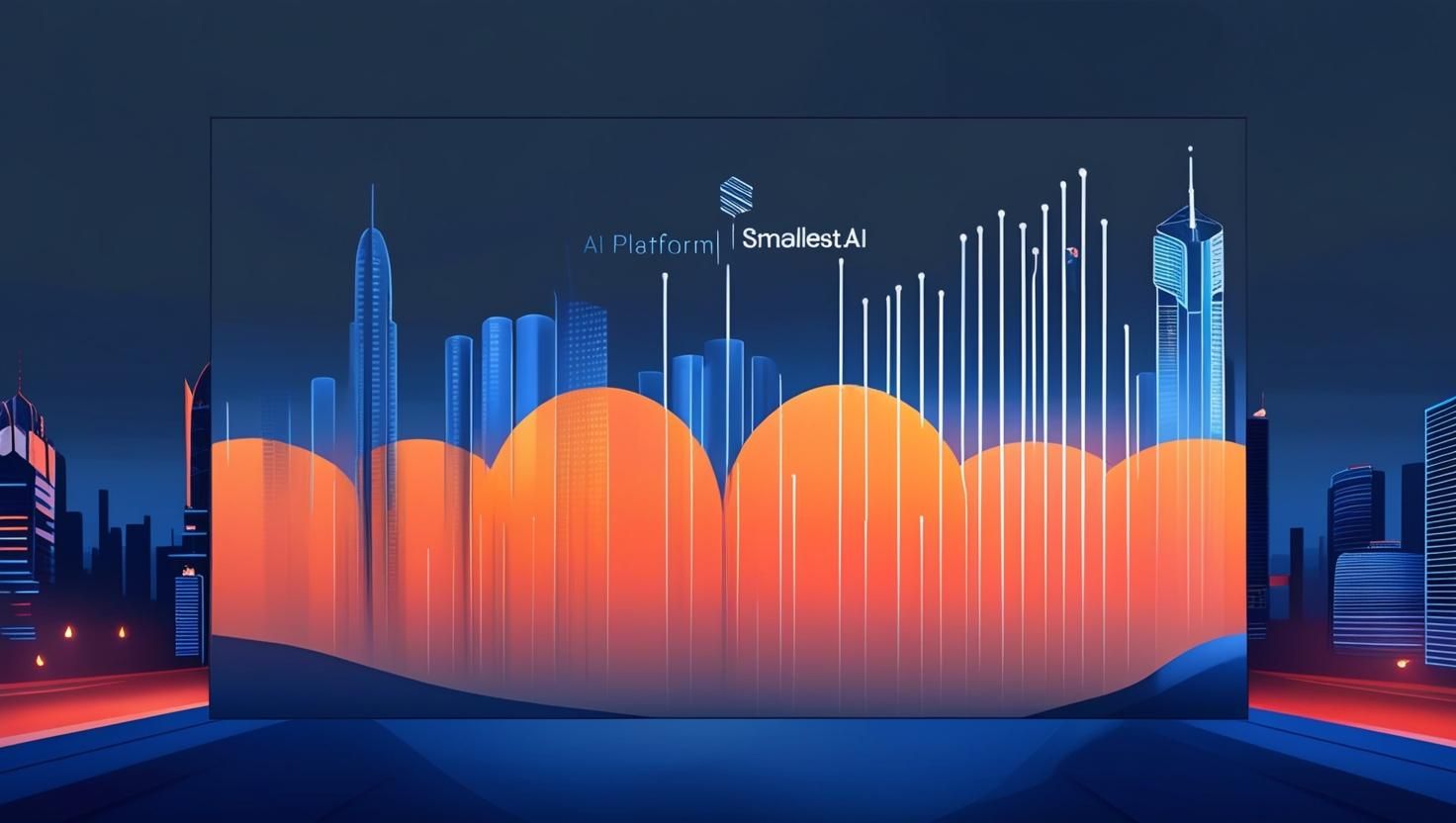Explore top Bland AI alternatives for 2025, including Smallest.AI, offering advanced features and customization

Sudarshan Kamath
Updated on
January 27, 2026 at 5:25 PM

Beyond Bland AI: Exploring Smarter Voice Assistant Alternatives in 2025
Why Businesses Are Moving Past Bland AI
Bland AI offers a solid foundation for voice automation, but as expectations around customer experience, customization, and conversational depth grow, many companies are finding it too limiting. In 2025, competitive businesses demand platforms that not only automate—but connect, understand, and evolve with users.
Whether you're building customer support agents, sales assistants, or conversational workflows, today's top alternatives to Bland AI deliver on natural interactions, flexible integrations, and brand-aligned customization.
🚀 The Rise of More Human, More Capable AI Platforms
As the market matures, a new generation of voice AI platforms has emerged—each designed to solve the shortcomings of rigid, generic models. These modern solutions bring:
Human-like voice generation
Dynamic response handling
Vertical-specific agent logic
Seamless system integrations
One of the standout names in this new wave is Smallest.AI—a voice-first platform designed for lifelike conversations and enterprise-ready customization.
🤖 Why Some AI Models Feel “Bland”
An AI platform becomes “bland” when it lacks the ability to personalize, adapt, or engage in real-time context. These limitations often stem from:
Generic training data that doesn't reflect domain-specific needs
Rigid logic trees instead of fluid, AI-driven dialogue
Minimal emotional intelligence and monotone voice synthesis
The result? Voice agents that sound robotic, feel disconnected, and fail to convert or retain users effectively.
Notable but Limited: Where Legacy AI Platforms Fall Short
IBM Watson: Dependable, But Dated
IBM Watson has long been a reliable tool for data-heavy industries, especially in healthcare. But its voice capabilities are outdated and lack the customization, emotional range, and flexibility modern use cases demand.
Microsoft Azure AI: Technically Solid, Creatively Lacking
Azure AI is technically robust, offering APIs and scalability for enterprise deployments. Yet, it struggles with creating natural, fluid conversations—making it a better fit for backend automation than customer-facing AI.
Google Cloud AI: Powerful Yet Impersonal
Google’s Gemini 2.0 model is strong on multimodal input and scale. However, its generalized approach can lead to impersonal interactions, especially for industries needing finely-tuned, emotionally intelligent voice agents.
AWS AI: Reliable Infrastructure, Little Imagination
AWS offers top-tier cloud infrastructure for deploying voice-based services, but it’s built for engineers, not marketers or customer experience teams. Voice customization is minimal, and it lacks native emotional expressiveness.
Rasa: Open-Source Flexibility, Limited Out-of-the-Box Impact
Rasa is a flexible open-source option ideal for developers. But it requires heavy lifting to match the out-of-the-box conversational quality and lifelike interaction offered by modern AI platforms.
⭐ Spotlight: Smallest.AI – The Leading Alternative to Bland AI
Smallest.AI is a next-generation voice automation platform designed for real-time, emotionally intelligent, and customizable AI conversations. It’s engineered for companies that need more than basic automation—those that want AI agents to sound, adapt, and behave like real team members.
🔑 Key Features:
Emotion-aware speech that adjusts tone based on context
Industry-specific agent templates with learn-on-the-job capabilities
Plug-and-play integrations with tools like HubSpot, Salesforce, and Slack
24/7 inbound and outbound voice automation
HIPAA, SOC2, and GDPR compliance for regulated industries
💼 Use Cases:
Customer support with empathy and escalation logic
Appointment scheduling and reminders via voice
Lead routing and real-time CRM updates
Proactive outbound campaigns segmented by behavior or location
💸 Transparent Pricing:
Plans range from a free tier to $49/month for enterprise-grade scale, with no hidden fees and predictable call rates. Smallest.AI is built to scale affordably with your needs.
🔮 What to Expect from Bland AI Alternatives in 2025
The most promising alternatives to Bland AI are defined by:
✅ More human-like voice synthesis: Emotional nuance, tone variation, and contextual intonation
✅ Advanced customization tools: Tailor agent behavior to your brand’s tone and industry-specific use cases
✅ Easier integrations: Connect seamlessly with CRMs, calendars, ticketing systems, and messaging platforms
✅ Authentic conversational flow: Fewer scripts, more natural dialogue handling with LLM-powered logic
✅ Stronger ethical design: Consent handling, transparency, and user privacy built into the architecture
✅ Conclusion: Are Bland AI Alternatives Worth Exploring?
Yes—especially if you're scaling or personalizing customer engagement.
While Bland AI is a solid start, businesses today need AI that reflects their brand, adapts to complex workflows, and speaks like a human. Platforms like Smallest.AI offer that leap—helping businesses build smarter, more relatable, and more scalable voice agents.
If your goal is to go beyond automation and create truly intelligent, emotionally aware AI experiences, Smallest.AI is the alternative to watch in 2025.

Automate your Contact Centers with Us
Experience fast latency, strong security, and unlimited speech generation.
Automate Now


